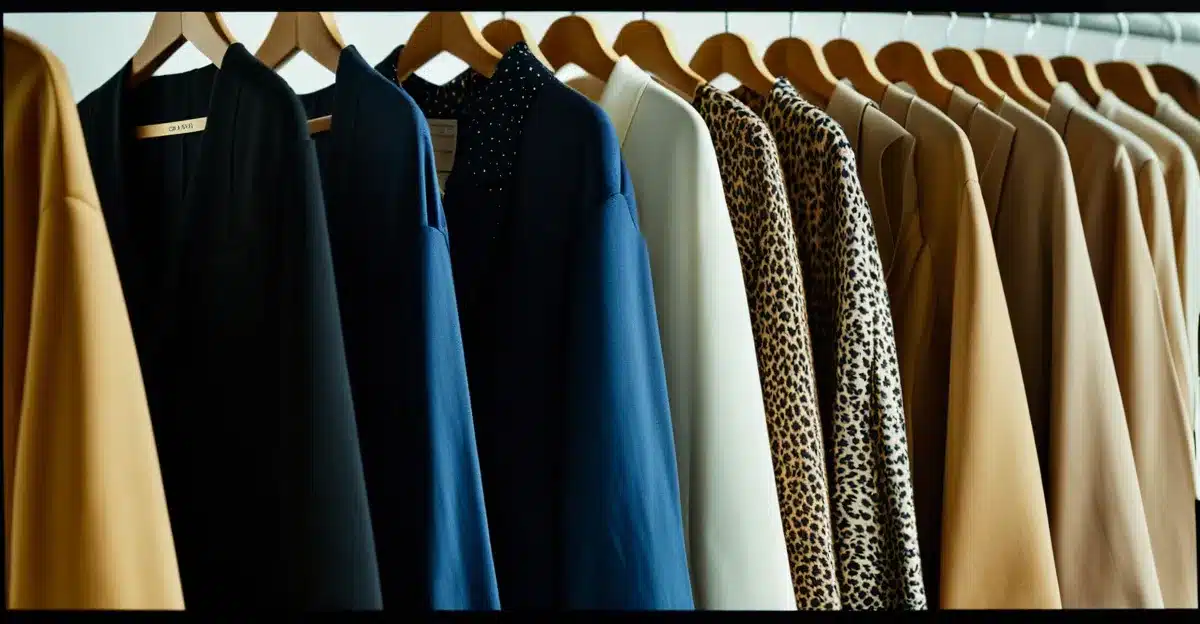Sustainable Fashion Trends Reshaping UK Women’s Wardrobes
Sustainable fashion trends UK are redefining how UK women approach their wardrobe changes. Increasingly, eco-friendly and ethical brands are gaining traction, appealing to consumers prioritizing environmental impact and social responsibility. This rise reflects a growing awareness in UK women’s fashion toward garments made with sustainable materials, transparent production processes, and fair labor practices.
Key trends shaping these wardrobe changes include upcycling, slow fashion, and circular fashion models. Upcycling converts existing textiles into new pieces, reducing waste and promoting creativity. Slow fashion emphasizes quality over quantity, encouraging UK women to invest in durable clothing rather than fast, disposable items. Circular fashion models focus on extending the lifecycle of garments through resale, repair, and recycling, minimizing landfill impact.
Topic to read : How Is the UK Fashion Industry Evolving to Meet Women’s Needs?
These trends influence styling choices, leading to more thoughtful UK women’s fashion decisions. Shoppers now often prioritize versatile, timeless pieces that fit into multiple outfits, reflecting a shift from seasonal whims to longevity and responsible consumption. The embrace of sustainable fashion trends UK is not only reshaping wardrobes but also fostering a broader cultural movement toward conscious style.
Notable Eco-Friendly Brands and Their Influence
When building a sustainable wardrobe, choosing from reputable eco-friendly fashion brands UK is essential. Brands like People Tree and Thought lead the market, each showcasing signature products made from organic cotton and recycled materials. These companies prioritize brand ethics by ensuring full transparency in supply chains and committing to fair wages for workers. This approach fosters trust and resonates with ethical shoppers who value responsible production.
In parallel : How are UK women incorporating bold prints into their everyday style?
Social responsibility extends beyond materials; many brands support community projects or environmental initiatives. For example, some allocate part of their profits toward reforestation or fair trade programs. This strengthens their brand identity and appeals to consumers seeking meaningful impact from their purchases.
Brand marketing strategies also play a crucial role in consumer engagement. Collaborations with artists or influencers who embody sustainability amplify brand visibility and encourage ethical shopping habits. Consumers increasingly favor brands that not only promise sustainable wardrobe choices but also demonstrate active leadership in social and environmental issues, making these eco-conscious labels a driving force in reshaping the UK fashion industry.
Changing Purchasing Behaviours Among UK Women
Recent trends show a significant shift in consumer behaviour UK fashion, with a growing preference for sustainable shopping among women. This change is driven largely by increased awareness of the environmental impact of fast fashion. Women are prioritising brands that demonstrate ethical practices, transparency, and use eco-friendly materials.
Education plays a key role in shaping these buying decisions. Informative content on social media platforms amplifies knowledge about sustainability, encouraging consumers to make mindful purchases. Influencers and eco-conscious campaigns further motivate shoppers to seek out products aligning with their values.
Data confirms this shift: sales for sustainable fashion in the UK have risen steadily over recent years. Retailers reporting higher percentages of sustainable clothing sales highlight how consumer demand is reshaping the fashion industry. These changes suggest that fashion industry changes are no longer optional but necessary responses to evolving preferences.
The trend towards conscious consumerism reflects a broader social movement, where women actively participate in reducing environmental footprints through everyday choices. This evolution in purchasing behaviours is expected to continue, prompting brands to innovate and prioritise sustainability.
Popular Materials and Sustainable Styles in the UK
In the UK, sustainable materials like organic cotton, recycled polyester, and TENCEL™ are increasingly shaping fashion choices. These eco-friendly fabrics reduce environmental impact by minimizing water use, chemical pesticides, and waste. For instance, organic cotton is grown without harmful chemicals, while recycled polyester repurposes plastic waste, cutting down landfill pollution.
UK fashion styles have embraced a shift toward minimalist and classic capsule wardrobes. This trend focuses on versatile pieces that can be mixed and matched, reducing the need for fast fashion consumption. Capsule wardrobes not only promote longevity but also encourage mindful purchasing, aligning with sustainable values.
Among the iconic sustainable pieces often found in UK women’s wardrobes are tailored blazers, simple cotton tees, and timeless knitwear. These staples emphasize quality over quantity, crafted from sustainable materials to provide durability and comfort. Embracing these eco-conscious fashion principles allows consumers to enjoy stylish yet responsible clothing choices that support both ethical production and reduced environmental footprints.
The Real-Life Impact on Wardrobe Choices and Lifestyles
Exploring real-life sustainable fashion reveals how UK women are transforming their wardrobes and lifestyles. One noticeable benefit is a streamlined wardrobe that reduces clutter. Many have shifted from impulse buying to thoughtful selection, choosing versatile pieces that reflect a personal style evolution. This shift often results in cost savings, as investing in quality items reduces repeat purchases.
Lifestyle changes include embracing slow fashion habits, such as repairing or repurposing existing garments. However, challenges remain. Some women report difficulty sourcing truly ethical brands in the UK, while others struggle with the higher upfront costs of sustainable clothing. Balancing fashion desires with eco-conscious choices requires determination but yields satisfaction through responsible consumption.
Testimonials highlight a renewed relationship with clothing, where each piece holds more meaning. Real-life sustainable fashion journeys show that while barriers exist, the benefits—wardrobe clarity, financial prudence, and evolving style—make the effort valuable for many UK women seeking authentic, sustainable lifestyles.
Expert Insights and Practical Tips for Building a Sustainable UK Wardrobe
Building a sustainable wardrobe UK requires thoughtful choices, starting with selecting high-quality pieces designed to last. Experts recommend prioritizing timeless styles over fast fashion trends to reduce waste and increase garment longevity. When sourcing sustainable fashion items in the UK, look for brands with transparent supply chains and certifications like Fairtrade or GOTS, ensuring ethical production and eco-friendly materials.
To maintain and extend the life of your clothing, simple practices such as washing garments at lower temperatures and using gentle detergents can minimize wear. Repairing clothes promptly—whether sewing minor tears or replacing buttons—prevents premature disposal and preserves your investment. Upcycling or swapping clothes with friends also supports a sustainable lifestyle, reducing demand for new items.
Engaging with local thrift shops, online resale platforms, and sustainable fashion events in the UK expands access to quality secondhand pieces. Embracing these expert fashion tips not only benefits the environment but cultivates a more intentional and fulfilling connection with your wardrobe.

